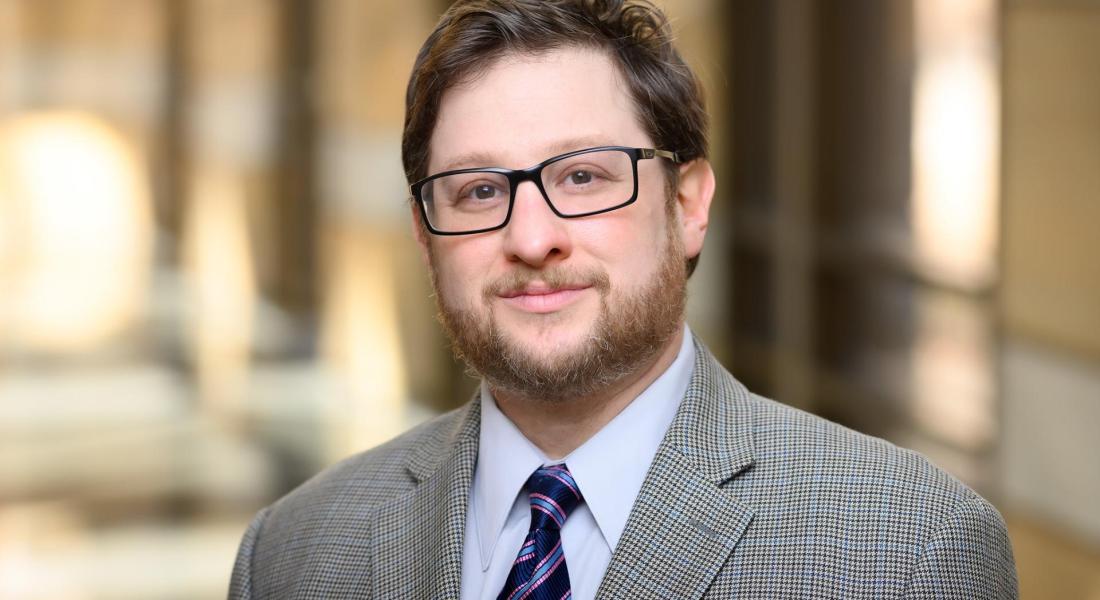
For more than a decade, China has invested heavily in the economic development of countries collectively known as the Global South. More recently, China has demonstrated that its ambitions are growing beyond the economic realm and extending into the geopolitical sphere. This shift carries implications not only for the developing countries that are the beneficiaries of China’s investment, but also for the United States and other developed democracies, says a scholar at the Keough School of Global Affairs.
“For China, nations and regions in the Global South are a major priority, and we should be paying more attention to them in addition to monitoring China’s great power rivalry with the United States,” said Joshua Eisenman, associate professor of politics in the Keough School. “The rivalry between China and the US is part of the story, but not the whole story.”
Kellogg Faculty Fellow Josh Eisenman researches China’s economic and geopolitical strategies in the Global South, which collectively includes Southeast Asia, South Asia, Latin America, Africa, and the Middle East. These regions have become an essential component of China’s external engagement and foreign policy in recent years, Eisenman said.
Eisenman and other Notre Dame scholars including Scott Appleby, Marilyn Keough Dean of the Keough School, Kellogg Faculty Fellows Susan Ostermann, assistant professor of global affairs, and Victoria Tin-bor Hui, associate professor of political science will participate in the two-day panel discussion “China in the Global South: Development and Influence in a Shifting Global Order,” held at the Atlantic Council on February 21-22 in Washington, DC. The event also will feature prominent experts from the U.S. Department of State, USAID, Freedom House, and experts from across the Global South such as Joseph Asunka, CEO of Afrobarometer, a prominent pan-African research network that provides data on the views of Africans to inform development and policy decision-making.
Two recent events signal China’s expanding geopolitical ambitions, Eisenman said. Most recently, as the US faced pushback for its support of Israel’s military campaign in the Gaza Strip, China aligned itself with countries such as Brazil, India, Pakistan, and South Africa, all of which condemned Israel’s actions. And in March 2023, China brokered a détente between Saudi Arabia and Iran following seven years of open hostility and nonexistent diplomatic ties between the two countries. Eisenman said these events reveal China’s expanding geopolitical interests beyond places like Africa, the largest beneficiary of Chinese investment in recent years.
“In many ways, China’s investment in places like Africa has peaked and is unlikely to return to those levels,” he said. “What is increasing are the engagements of the Communist Party of China and the People’s Liberation Army with their counterparts in the Global South. We’re seeing an expansion in the political and security arena in ways that should draw our attention.”
To shed light on these and other emerging trends, the Keough School’s Pulte Institute for Global Development and the Atlantic Council have formed the China-Global South Initiative, a multi-year partnership that is co-directed by Eisenman and David Shullman, who leads the Council’s Global China Hub. This joint effort convenes policymakers, academics and local partners to study and coordinate local responses to China’s strategic intentions and impacts in the Global South. The initiative also aims to produce rigorous academic and policy publications, convene leading experts, and offer mentoring opportunities for Notre Dame students and experts from the Global South. Founded in 2022, the initiative aims to become the premier global resource for understanding China in the Global South.
The Atlantic Council event will be the largest that the China-Global South Initiative has hosted, Eisenman said. “The scope of this event reflects the tremendous support of the Keough School and the Atlantic Council for this initiative,” Eisenman said. “With top US officials joining attendees from all around the Global South, including the Philippines, Colombia, Ghana, and more, we believe it will generate critical insights not only for future research, but for future policy strategies as well.”
Eisenman is the co-author (with David Shinn) of China’s Relations with Africa: A New Era of Strategic Engagement (Columbia University Press, 2023), which focuses on political and security relations between China and Africa, explains the tactics and methods that China uses to build relations with African countries, and contextualizes and interprets them within Beijing’s larger geostrategy.
This story originally posted at keough.nd.edu.
The Kellogg Institute for International Studies, part of the Keough School of Global Affairs at the University of Notre Dame, is an interdisciplinary community of scholars and students from across the University and around the globe that promotes research, provides educational opportunities, and builds partnerships throughout the world on the themes of global democracy and integral human development.





